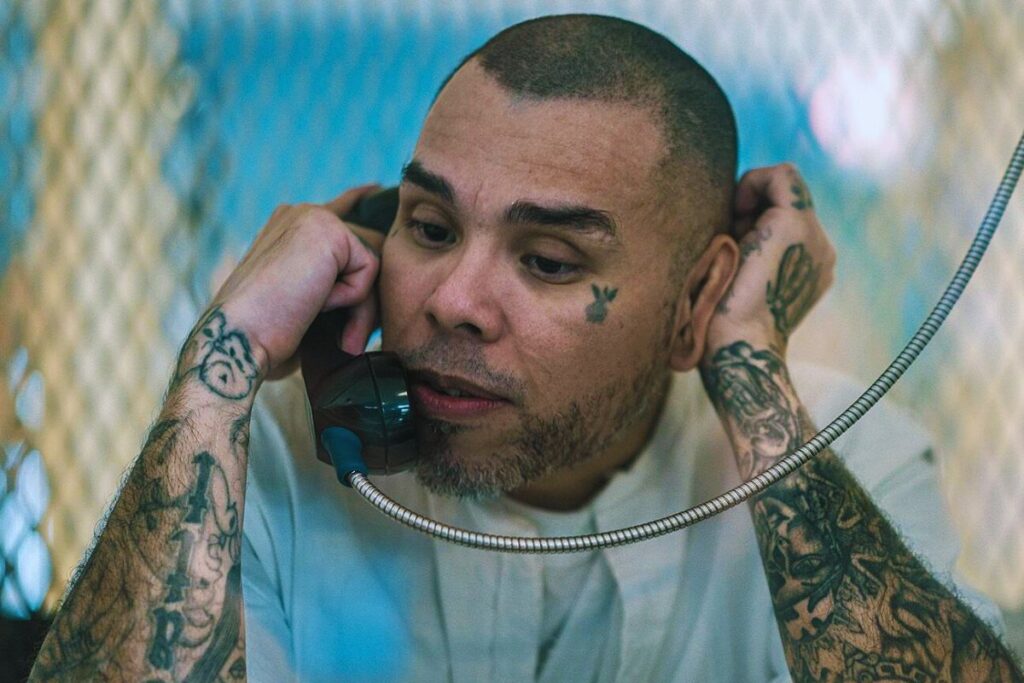


On Wednesday evening, June 26, 2024, Ramiro Gonzales, 41, was executed for the barbaric 2001 murder of Bridget Townsend in a somber event that represented a controversial chapter in the criminal justice history of Texas. The execution, which took place at the state penitentiary in Huntsville, occurred on the same day as Townsend’s 41st birthday. Gonzales, who was on death row for over two decades, was pronounced dead at 6:50 p.m. CDT after receiving a lethal injection of pentobarbital.
In his last words, Gonzales apologized for his crimes, pleading with a remorseful apology to the family of the victim, which he had tried to acknowledge in its irreparable suffering.
“I don’t know how to tell you how much pain I’ve caused you, the anguish, and the loss that I could never regain,” he said. “I hope this apology is enough.” I never stopped praying that you would find it in your heart to forgive me and that someday I might have the opportunity to apologize to you.
Gonzales had made very little movement as the sedative began to take effect, and he was unresponsive within a minute.

On January 2001, Gonzales committed the serious crime of kidnapping Bridget Townsend from a house in Bandera County, which is located northwest of San Antonio. He then took her to the ranch of his family in Medina County where he killed her and sexually assaulted her. Townsend’s body was last found in October 2002, almost two years after her disappearance. Gonzales, who was already serving two life sentences for the abduction and rape of another woman, ultimately led authorities to the location where he had disposed of Townsend’s body.
The road to Gonzales’s execution was riddled with numerous motions and appeals in court. In defense, it argued that there was a defective testimony of the prosecution expert during the penalty phase, which declared that Gonzales was a continuous threat to society. In 2022, he revoked his evaluation of Gonzales; his prognosis about Gonzales’s later danger proved to be wrong. However, the courts didn’t reverse the death warrant.
Just hours before the execution, the U.S. Supreme Court refused to act on a last-ditch appeal. Defense attorneys highlighted Gonzales’s efforts at rehabilitation, including his commitment to helping his fellow inmates and his deep religious beliefs. However, these arguments were not enough to sway the judiciary or the Texas Board of Pardons and Paroles, which voted unanimously against clemency and a temporary reprieve.
The execution was a somber landmark for the family of Bridget Townsend. Patricia Townsend, the mother of the victim, expressed deep feelings about the timing of the execution, referring to the fact that her daughter’s birthday fell on June 26.
She said, “That is her birthday.” “I started crying hysterically when they told me that June 26 was the date.”
David Townsend, Bridget’s brother also disagreed with the stories that reported Gonzales to be reformed in nature, emphasizing instead his heinous crimes that would never be made undone as well as the damage irreparable that he had meted out on their family.
“This family does not seek vengeance, but we do seek justice and a little peace over what has been a sorrowful number of years.”
“That quest is thwarted by decisions that allow the torturer of our souls to remain in the public domain.”

Leaders of faith and activists showed special interest in the case of Gonzales, arguing that religious conversion was a justification for clemency. The group of 11 evangelical leaders sent a petition to the Governor Greg Abbott to halt the execution, describing Gonzales as a reformed man who sought redemption through religion.
Their plea stated, “We are writing as Christians, implore you to spare the life of another Christian.” “We believe also that the conditions around him must also change in light of his redemption.”
Although they were still pleading for their cause, state authorities confirmed the verdict of the death sentence. Prosecutors pointed out the previous history of violence by Gonzales and his failure to express remorse when arrested.
Gonzales’s execution was the second in Texas in 2024, underscoring the state’s ongoing implementation of capital punishment amid evolving national discourse regarding its efficacy and morality. Texas continues to be one of the nation’s most prolific jurisdictions for executions, with 185 inmates currently on death row.
This is a typical case of polarized opinions on the death penalty. Proponents argue that it ensures justice for the victim’s families and serves as a deterrent, while the opponents question its fairness and the possibility of irreversible mistakes. Gonzales’s supporters argued that his execution deprived him of the chance to experience genuine redemption and rehabilitation.
The existence of Bridget Townsend was tragically brought to a close by an act of unspeakable malice. For Ramiro Gonzales’s family, the execution had provided a measure of finality, but their pain did not abate. The case underscores the recurring complexity of ensuring justice in capital cases in which legal, moral, and emotional considerations converge. The death penalty debate is no less urgent as Texas struggles to overcome these challenges.
